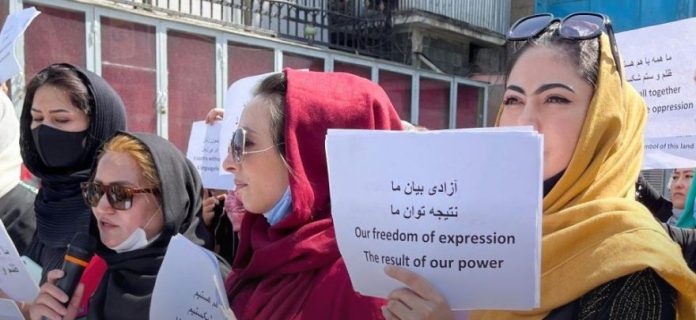Dr. Farhana Qazi,
Halima Nasiri ,
Aziza Mukhammedova
Afghanistan today stands on the edge of a generational turning point. The collapse of women’s education, the weakening of regional trade, and the persistence of cultural isolation have created a dangerous mix. Yet within this crisis lies a possibility: to rebuild Afghanistan’s stability through three pillars: education, connectivity, and Islamic legitimacy. Taken together, these foundations can provide the country with a durable path toward peace, prosperity, and inclusion.
Education is the frontline of Afghanistan’s struggle for survival. When girls are barred from schools and universities, not only just their futures stolen, but the nation’s economic and social capital is dismantled. A society that denies education to half its population condemns itself to stagnation. Schools should not be considered as classrooms only; in fact, they are engines of resilience, equipping families and communities with the skills to navigate adversity. Historical experience shows this clearly. In the early 2000s, as Afghan girls returned to school in large numbers, literacy rates increased, and households benefited from improved health and higher income levels. The reversal of this progress since 2021 represents a human tragedy as well as an impending economic disaster. Reopening educational access for women and girls is therefore not an abstract right but a strategic necessity. Without it, Afghanistan risks producing a generation deprived of the very tools required to rebuild the country.
But education alone cannot sustain stability. Afghanistan must be reconnected with its neighbors. Regional connectivity offers both opportunity and leverage. The proposed Trans-Afghan railway, linking Central Asia with South Asia, symbolizes this vision. Beyond the physical rails, connectivity means trade corridors, cultural exchanges, and shared markets that anchor Afghanistan in interdependence rather than isolation. Uzbekistan’s advocacy for infrastructure and people-to-people diplomacy underscores this point. When goods, students, and ideas flow across borders, the appeal of extremism and exclusion diminishes. Connectivity provides the infrastructure of peace, transforming geography into opportunity. For Afghanistan, integration into regional networks is existential.
Yet even with education and connectivity, one barrier remains: legitimacy. No policy, however rational, can succeed in Afghanistan without cultural and religious grounding. This is where Islamic engagement becomes indispensable. The Qur’an and Sunnah provide ample support for women’s pursuit of knowledge. Islamic scholars across the region must engage their Afghan counterparts, offering reasoned fatwas that affirm education as a religious duty. Such religiously credible endorsements can open doors that external pressure cannot. Fatwas carry authority in ways that international appeals never will. To secure progress, reforms must be rooted in Islamic reasoning that resonates with Afghan society. Mobilizing ulema, providing religiously sanctioned solutions for women’s travel and study, and ensuring educational initiatives are embedded within an Islamic framework are critical for sustainability.
The fusion of these three pillars, education, connectivity, and Islamic legitimacy, creates a roadmap for Afghanistan’s recovery. Scholarships and online programs can bridge immediate gaps, ensuring Afghan women are not cut off from learning. Teacher-training programs can sustain quality and expand reach, especially in rural areas. Regional infrastructure projects can open corridors of trade and opportunity, while also binding Afghanistan into cooperative networks that reduce incentives for conflict. Religious dialogue can provide the cultural legitimacy that makes reforms sustainable, turning what might otherwise be foreign impositions into accepted norms.
The implications stretch beyond Afghanistan. For Central Asia, an educated and connected Afghanistan can unlock markets and reduce insecurity along its borders. For South Asia, it promises trade routes and stability in a region too often hostage to conflict. For the broader Muslim world, supporting Afghan women’s education within an Islamic framework is a test of credibility. If Muslim nations cannot uphold the right to knowledge as a religious duty, then their appeals to shared values will ring hollow. Conversely, if they succeed, they will demonstrate that Islamic reasoning can be harnessed to advance progress rather than obstruct it.
To transform this vision into reality, three conditions are essential. First, institutionalization. Universities, ministries, and regional organizations must establish dedicated units to manage scholarships, online learning platforms, and cultural exchanges. Second, sustainable financing. Long-term commitments, rather than one-off donor projects, are necessary to ensure that initiatives survive political transitions. Third, monitoring and accountability. Success must be measured not by announcements but by enrollment figures, graduation rates, and the number of partnerships that materialize.
The stakes are stark. If these measures are pursued with seriousness, Afghanistan can still build a foundation for stability. But if they are delayed or diluted, the cost will be severe: radicalization, poverty, and regional instability that will not stop at Afghanistan’s borders. The human cost, borne most heavily by women, will be matched by a geopolitical cost paid by all neighbors.
What Afghanistan needs now is not sympathy but strategy. The region possesses the tools: railways that link economies, classrooms that train generations, and a faith tradition that affirms learning as a sacred duty. To combine them is to give Afghanistan a future. To neglect them is to watch a generation slip away. The choice, though urgent, is still open. The question is whether the region has the resolve to act before it is too late.
Dr. Farhana Qazi is Religious Scholar and Assoicate Professor in University of Peshawar.
Halima Nasiri is Afghan Religious Scholar and the Principal of a private school.
Aziza Mukhammedova is a Senior Research Fellow at the Center for Afghanistan and South Asian Studies at the Institute for Advanced International Studies (IAIS), Uzbekistan.

















